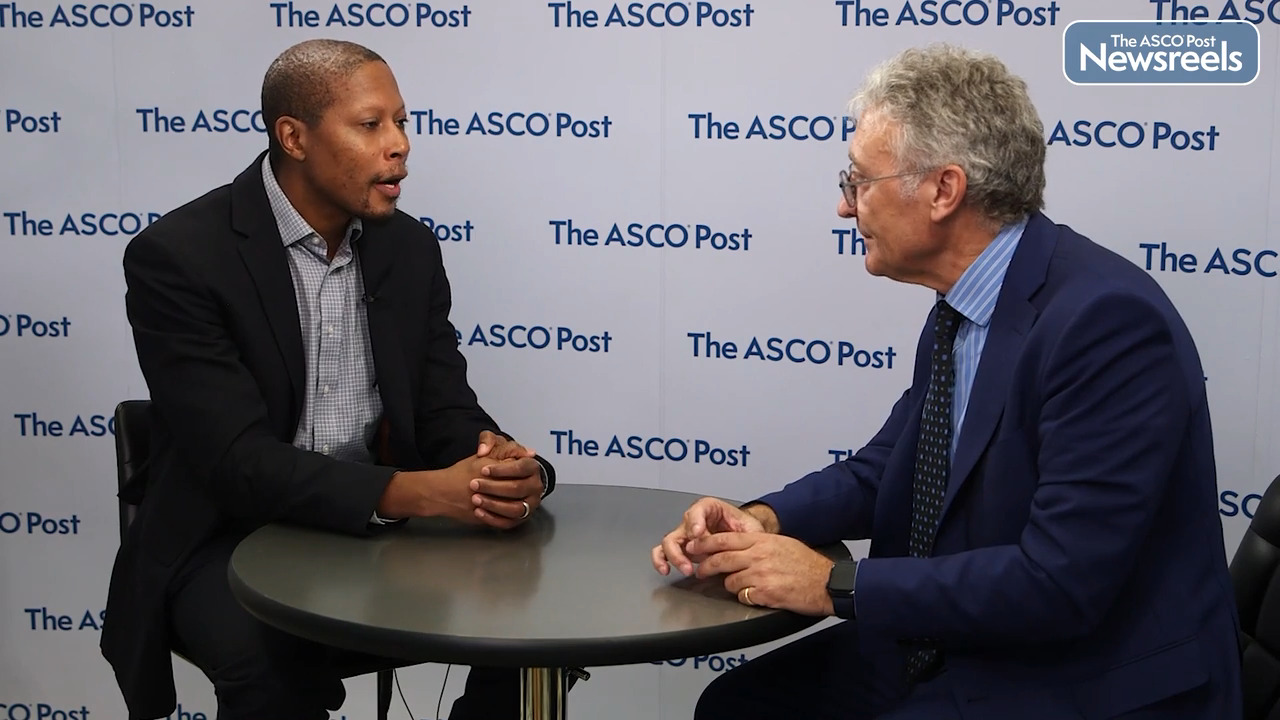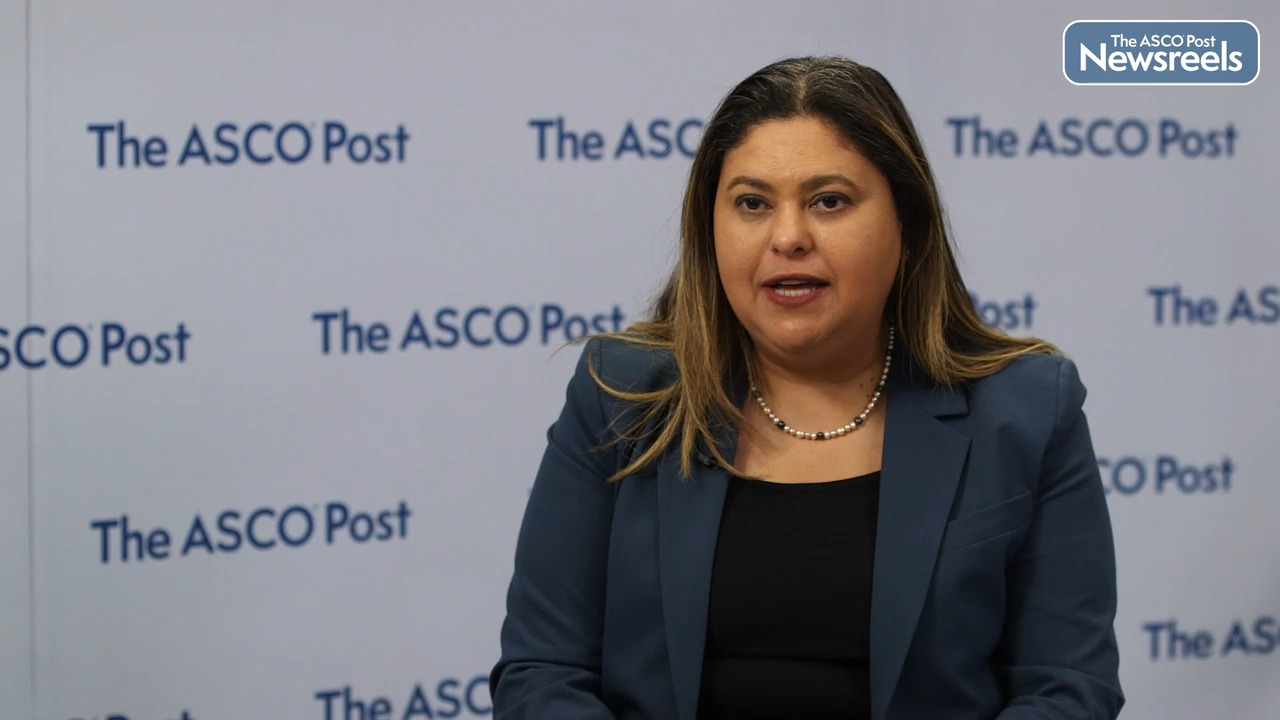Ajay K. Nooka, MBBS, on High-Risk Myeloma: Data on Carfilzomib, Pomalidomide, and Dexamethasone
2023 ASCO Annual Meeting
Ajay K. Nooka, MBBS, of Winship Cancer Center of Emory University, discusses phase II findings showing that, in patients with high-risk myeloma, maintenance therapy with carfilzomib, pomalidomide, and dexamethasone deepened responses. Measurable residual disease negativity was attained in 80% of patients.
The ASCO Post Staff
Tycel J. Phillips, MD, of City of Hope National Medical Center, and Emanuele Zucca, MD, of the Oncology Institute of Southern Switzerland and the International Extranodal Lymphoma Study Group, discuss findings from the largest prospective study of patients with primary mediastinal B-cell lymphoma. The trial data support omitting radiotherapy in patients who achieve complete metabolic response after immunochemotherapy (Abstract LBA7505).
The ASCO Post Staff
Jennifer L. Crombie, MD, of Dana-Farber Cancer Institute, discusses the historically poor outcomes for patients with relapsed or refractory diffuse large B-cell lymphoma (DLBCL). Her study examined real-world data on the use of novel therapies in this population and found that outcomes with second- and third-line regimens of polatuzumab vedotin-piiq plus bendamustine and rituximab and tafasitamab plus lenalidomide remain suboptimal, with worse outcomes particularly after chimeric antigen receptor T-cell therapy (Abstract 7552).
The ASCO Post Staff
Lisa M. DeAngelis, MD, and Ingo K. Mellinghoff, MD, both of Memorial Sloan Kettering Cancer Center, discuss findings from the INDIGO trial showing that the IDH1/2 inhibitor vorasidenib improves progression-free survival for patients with residual or recurrent grade 2 glioma with an IDH1/2 mutation. These data demonstrate the clinical benefit of vorasidenib in this patient population for whom chemotherapy and radiotherapy are being delayed.
The ASCO Post Staff
Jonathan W. Riess, MD, of the University of California, Davis Comprehensive Cancer Center, explores the findings of three important clinical trials in lung cancer treatment: whether to incorporate immune checkpoint inhibitors into the treatment of EGFR-mutated lung cancer, the importance of central nervous system activity in EGFR-mutant lung cancer, and new therapies for disease with EGFR exon 20 insertion.
The ASCO Post Staff
Nagla Abdel Karim, MD, of the Inova Schar Cancer Institute, University of Virginia, discusses phase II data showing that maintenance atezolizumab plus talazoparib improved progression-free survival in Schlafen-11–selected patients with extensive-stage small cell lung cancer. This study demonstrated the feasibility of conducting biomarker-selected trials in this disease, paving the way for future evaluation of novel therapies in selected populations (Abstract 8504).





